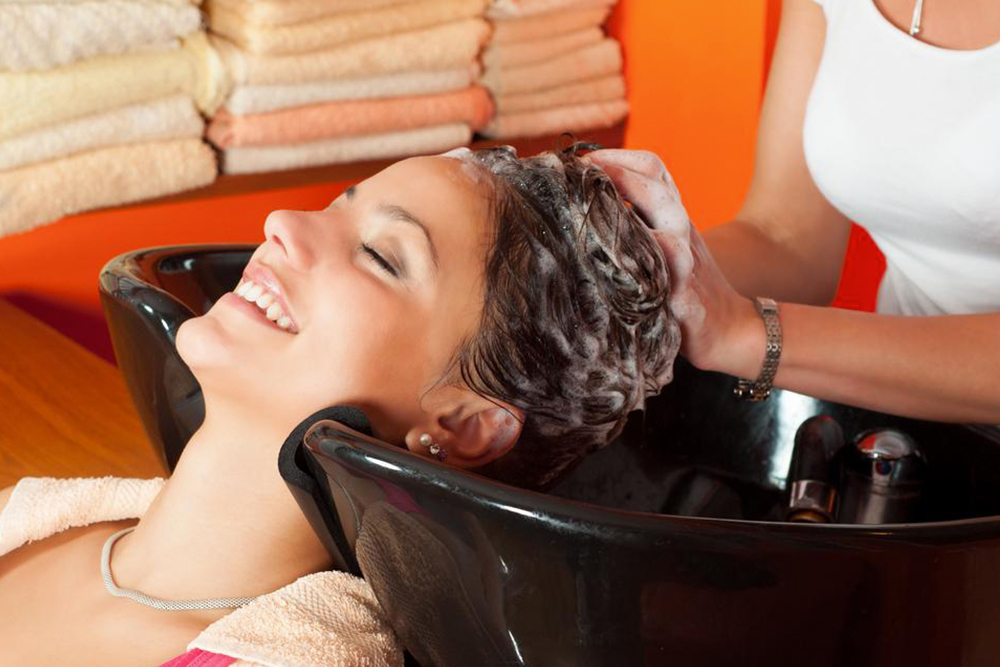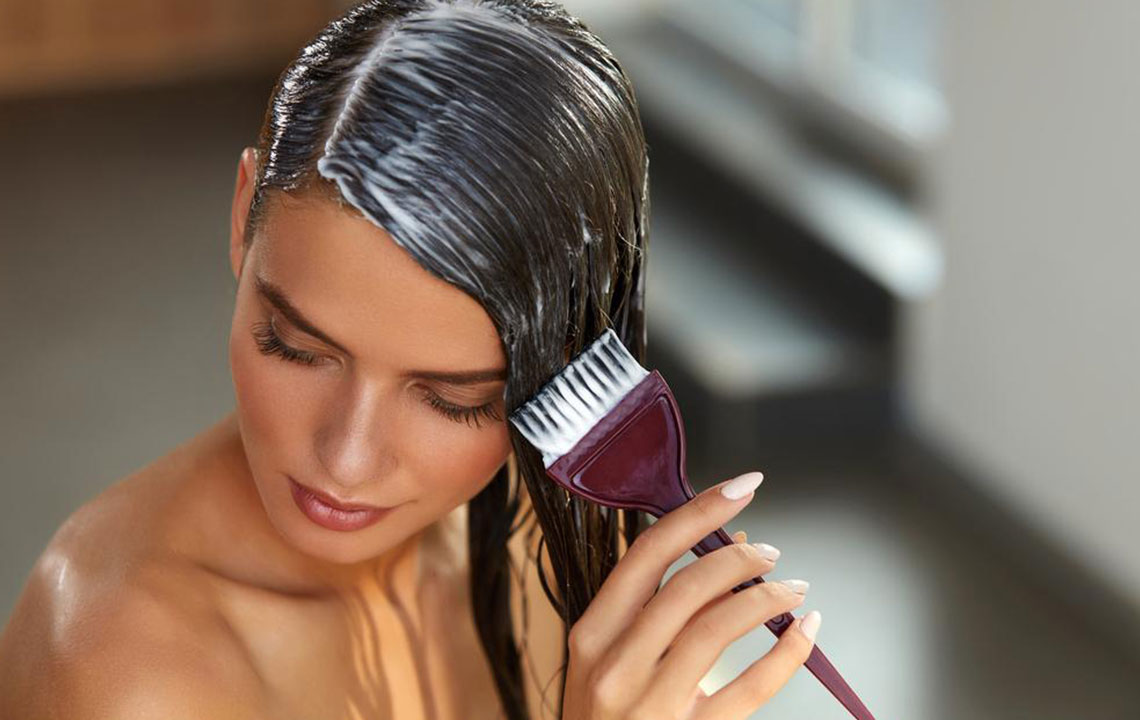Natural and Effective Strategies to Combat Women's Hair Loss
Discover comprehensive natural solutions for women's hair loss. Learn effective hair regrowth tips including scalp massages, nutritional advice, herbal oils, and gentle styling practices. These holistic methods can help restore hair health, boost confidence, and promote thicker, stronger hair naturally. Ideal for women seeking safe, non-invasive remedies to combat thinning and shedding, with professional consultation recommended for persistent issues.

Natural and Effective Strategies to Combat Women's Hair Loss
Hair thinning and hair loss are common concerns for many women today, caused by a variety of factors including genetics, hormonal fluctuations, stress, poor nutrition, autoimmune disorders, and scalp health issues. Shedding excessive hair can be distressing and impact self-confidence, but understanding the root causes and exploring natural remedies can significantly improve hair health. This comprehensive guide delves into proven natural methods that women can adopt to stimulate hair growth, strengthen existing strands, and enhance scalp vitality. From scalp massages to dietary adjustments and herbal treatments, these holistic approaches offer a safe and effective way to address hair loss without relying solely on medications or invasive procedures.
Understanding Female Hair Loss
Hair loss in women, also known as female pattern hair loss or androgenetic alopecia, can manifest as thinning on the crown or overall scalp. Unlike male baldness, women typically retain their hairline, but the thinning can be gradual and progressive. Factors contributing to hair loss are multifaceted, and identifying specific triggers is crucial for effective treatment. Common causes include hormonal imbalances—particularly involving androgens and estrogen—stress-induced telogen effluvium, nutritional deficiencies, autoimmune conditions like alopecia areata, scalp infections, and environmental factors. Additionally, certain medications and hairstyles that pull on the hair can exacerbate hair loss.
Before considering intensive medical treatments, women are encouraged to explore natural remedies and lifestyle modifications that can promote healthier hair growth and reduce shedding. These approaches not only support hair follicles directly but also improve overall scalp health and well-being.
Effective Natural Methods to Promote Hair Regrowth
1. Scalp Massage for Increased Blood Circulation
One of the oldest and most accessible natural remedies is regular scalp massage, which has been used across cultures for centuries. The benefits are backed by scientific evidence showing that gentle massage boosts blood flow to hair follicles, delivering essential nutrients and oxygen necessary for hair renewal. Stimulating the scalp with fingertips or specialized brushes can also activate the dermal papilla cells—key players in hair growth cycles. Consistent massage not only encourages new hair growth but also nourishes existing strands, making hair appear thicker and shinier over time. Additionally, the relaxing nature of scalp massage helps reduce stress—a known trigger for hair shedding—thus supporting a holistic approach to hair health.
2. Coconut Oil Nourishment
Coconut oil remains a popular natural remedy for hair care due to its rich content of lauric acid, which penetrates deeply into the hair shaft. This absorption minimizes protein loss, strengthens hair strands, and prevents breakage. For optimal results, warm the oil slightly before application, ensuring it becomes more penetrative and nourishing. Those with oily scalps might prefer applying coconut oil after washing, leaving it on for several hours or overnight to maximize absorption. Dry-haired individuals can pre-apply the oil before washing to coat the hair shaft. Regular use of coconut oil can improve scalp vitality, reduce dryness, and promote the growth of resilient, healthy hair.
3. Balanced, Nutrient-Rich Diet
Nutrition plays a pivotal role in hair health. Incorporating a diet rich in vitamins and minerals ensures that hair follicles receive the essential building blocks for growth. Focus on consuming fresh fruits, vegetables, lean proteins, nuts, and seeds like almonds, walnuts, and flaxseeds. These foods provide vital nutrients such as biotin, zinc, iron, vitamin C, and vitamin E—all critical for keratin production and scalp circulation. Hydration is equally important; drinking sufficient water helps maintain moisture in hair strands and supports overall cellular functions within the scalp. Avoiding processed foods and excess sugars can further reduce inflammation, which may impair follicle function.
4. Gentle Hair Styling Practices
The way we style our hair significantly influences its health. Harsh chemical treatments like relaxers, perms, and frequent coloring weaken hair strands over time. Excessive heat styling with curling irons, flat irons, or blow dryers set at high temperatures can cause thermal damage, leading to breakage and shedding. To protect your hair, opt for gentle styling techniques, avoid tight hairstyles that pull on roots, and limit washing frequency to prevent stripping natural oils. When blow-drying, use the lowest heat setting and keep the dryer at a safe distance. Using nourishing hair serums and conditioners designed for damage repair can further enhance hair resilience.
5. Green Tea Rinse for Scalp Health
Green tea is rich in antioxidants and catechins, which can aid in reducing scalp inflammation and preventing dryness. Using cooled green tea as a rinse after shampooing can strengthen hair roots and diminish dandruff. Additionally, green tea contains compounds that inhibit the DTH hormone—linked to hair follicle miniaturization—potentially slowing down hair loss processes. Incorporate green tea rinses into your hair care routine a few times a week to promote natural growth and maintain a healthy scalp environment.
6. Rosemary Essential Oil for Stimulating Growth
Rosemary oil is renowned for its ability to stimulate hair follicles, improve blood circulation, and reduce hair fall. Mix a few drops with carrier oils such as jojoba, argan, or coconut, and massage into the scalp regularly. Applying rosemary oil can invigorate dormant follicles and support new hair growth. Additionally, adding a few drops to your shampoo or conditioner makes daily use convenient and effective. Regular use of rosemary oil not only encourages thicker hair but also improves scalp health and reduces inflammation caused by irritation or dandruff.
Lemon Juice and Oil for Shine and Scalp Health
Lemon is rich in vitamin C and citric acid, which help strengthen hair and promote a healthy scalp by controlling excess oil and reducing dandruff. Diluted lemon juice or lemon oil can be applied before shampooing to boost shine, reduce frizz, and decrease hair fall. Be cautious with lemon applications, especially for those with sensitive skin or light-colored hair, to avoid dryness. Combining lemon with nourishing carrier oils, such as coconut or olive oil, ensures scalp hydration while maximizing benefits.
7. Geranium Oil to Improve Circulation and Strengthen Hair
Geranium essential oil enhances blood flow to the scalp, which facilitates better nutrient delivery and strengthens hair strands. Mix three drops of geranium oil with carrier oils like argan or jojoba and massage into the scalp twice a week. You can also add a few drops to your regular shampoo or conditioner for ongoing support. Regular application helps keep the scalp healthy, reduces inflammation, and encourages resilient hair growth.
8. Vitamins and Supplements for Enhanced Growth
Supplementing your diet with key vitamins and minerals can help address deficiencies that undermine hair health. Vitamins A, C, D, and E, along with minerals like zinc, iron, and biotin, support keratin synthesis, improve scalp circulation, and reduce inflammation. Consult with a healthcare provider before starting any supplement regimen to determine personal needs. Nutrient-rich foods such as leafy greens, eggs, fish, and nuts naturally provide many of these essential nutrients, but targeted supplements can be beneficial if deficiencies are diagnosed.
When to Seek Medical Advice
While most cases of hair shedding are normal and can be managed with natural remedies, excessive hair loss—especially when accompanied by symptoms such as scalp itching, redness, pain, or fatigue—may indicate underlying health issues. Persistent or severe hair thinning warrants consultation with a dermatologist or trichologist to rule out conditions like hormonal disorders, thyroid dysfunction, or autoimmune diseases. Early diagnosis and targeted treatment can prevent further hair loss and promote regrowth.
In conclusion, embracing natural remedies and holistic practices offers a safe, cost-effective way for women to improve their hair health and combat thinning. Combining scalp massages, nutritional improvements, herbal oils, and gentle styling can lead to thicker, healthier hair over time. Remember, patience and consistency are key to seeing lasting results, and professional advice is vital if hair loss persists or worsens.





